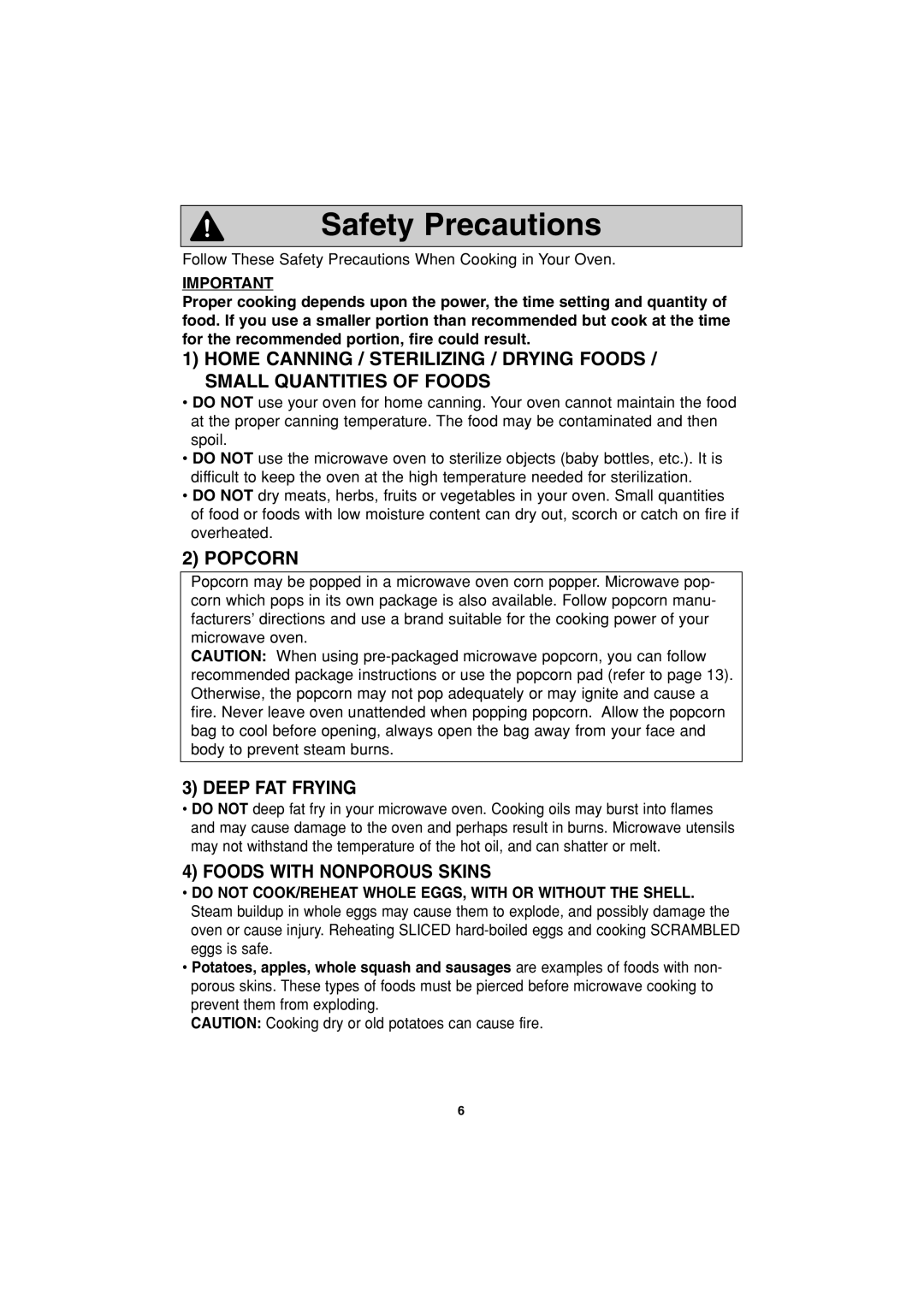
Safety Precautions
Follow These Safety Precautions When Cooking in Your Oven.
IMPORTANT
Proper cooking depends upon the power, the time setting and quantity of food. If you use a smaller portion than recommended but cook at the time for the recommended portion, fire could result.
1) HOME CANNING / STERILIZING / DRYING FOODS / SMALL QUANTITIES OF FOODS
•DO NOT use your oven for home canning. Your oven cannot maintain the food at the proper canning temperature. The food may be contaminated and then spoil.
•DO NOT use the microwave oven to sterilize objects (baby bottles, etc.). It is difficult to keep the oven at the high temperature needed for sterilization.
•DO NOT dry meats, herbs, fruits or vegetables in your oven. Small quantities of food or foods with low moisture content can dry out, scorch or catch on fire if overheated.
2) POPCORN
Popcorn may be popped in a microwave oven corn popper. Microwave pop- corn which pops in its own package is also available. Follow popcorn manu- facturers’ directions and use a brand suitable for the cooking power of your microwave oven.
CAUTION: When using
3) DEEP FAT FRYING
•DO NOT deep fat fry in your microwave oven. Cooking oils may burst into flames and may cause damage to the oven and perhaps result in burns. Microwave utensils may not withstand the temperature of the hot oil, and can shatter or melt.
4) FOODS WITH NONPOROUS SKINS
•DO NOT COOK/REHEAT WHOLE EGGS, WITH OR WITHOUT THE SHELL. Steam buildup in whole eggs may cause them to explode, and possibly damage the oven or cause injury. Reheating SLICED
•Potatoes, apples, whole squash and sausages are examples of foods with non- porous skins. These types of foods must be pierced before microwave cooking to prevent them from exploding.
CAUTION: Cooking dry or old potatoes can cause fire.
6
